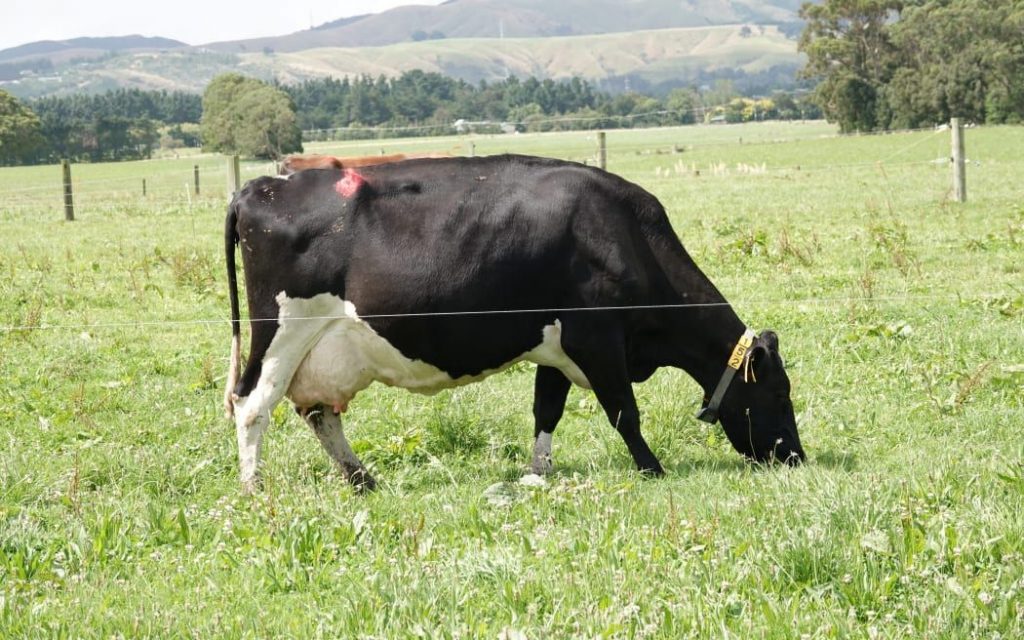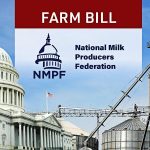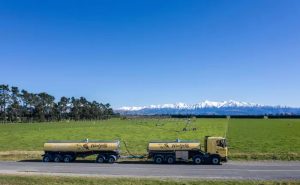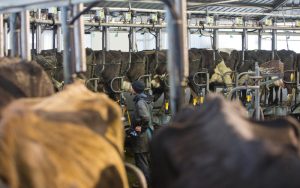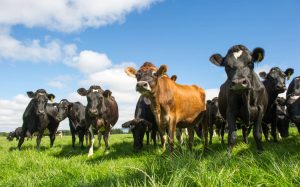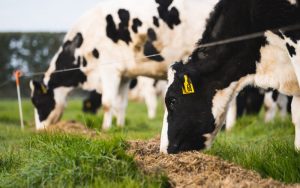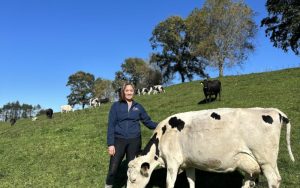
But the tall stalks and black heads of plantain could help clean up the country’s waterways, according to a dairy industry trial.
New research out of Massey University in Palmerston North has shown adding the leafy herb to cows’ grazing crops can reduce the amount of nitrogen escaping from dairy farms into waterways by 20 to 60 percent.
Glenn Judson, an animal nutritionist from crop and pasture company Agricom, said everybody would recognise the plant, even if they did not realise its powers.
“If you Google it you might find the banana. It’s unrelated. Plantain is plantago lanceolata.
“We call it a narrow leaf plantain. It’s got a long, narrow leaf. It’s got ribs on the leaf. The telltale is a seed head, which is on a long stalk and there’s a black seed head.”
Importantly for the diary industry, it did not have negative effects on dairy production.
“What we normally have in some of these technologies is we get a good effect in terms of nitrate leaching, but there’s a payoff there – we have to accept a lower productivity or some other issue.
“In this case [for] productivity, the catch phrase is, ‘It’s never any less than what you’d get from a normal pasture and sometimes more’.”
Industry body Dairy NZ has led the funding for $22 million trials at Massey and Lincoln universities. Other funding has come from the government, PGG Wrightson Seeds and Fonterra.
Dairy NZ chief executive Dr Tim Mackle said it was important to have the universities and farmers involved, for credibility.
“Dairy farmers are always looking for solutions to farm better. Environmental sustainability is a key driver for them and us as a dairy sector.
“It’s important to them and their communities, and today we’re talking about an exciting solution. I think this will be a game changer.”
It was a game changer that would change cows’ toilet habits.
Nitrate, a form of nitrogen from cows’ urine, can leach into waterways and cause the growth of nuisance algae, while removing oxygen.
Massey University school of agriculture and environment professor Peter Kemp said plantain made cows relive themselves more – which was a good thing.
“The nitrogen concentration in the urine’s lower, but there’s more from a cow when it’s eating plantain, which means that it urinates more often.
“That spreads the nitrogen over a greater area, so it’s more dilute, and there’s less in total anyway.”
Kemp said he was confident farmers would adopt plantain.
“I think it will happen quickly because it’s not a radical change for a system. It’s just adding something into the pasture.
“The other reason is, from what I’ve seen from the farmers that I’m involved with, [they have a] huge commitment to meet the nitrogen leaching regulations.”
Dannevirke diary farmer Thomas Read has used plantain on his three dairy operations, totalling more than 500 hectares, for seven or eight years.
He plans to plant more of it, among the usual feeds, and said it had piqued the interest of fellow farmers.
“I had one guy say, ‘Oh hell no, I don’t want anything to do with this,’ come and have a look at our trial on farm and saw what we were doing.
“Within the next year he’s already tried to adopt over 40 percent of his farm in a quick turnaround.”
Farmers around New Zealand had shown an interest in the trials, Read said.
“Farmers are constantly looking for solutions and tools to improve their businesses and improve their farms. This is just one of those tools.”
